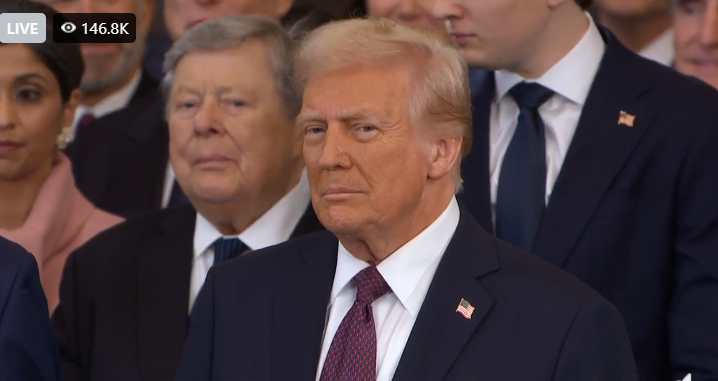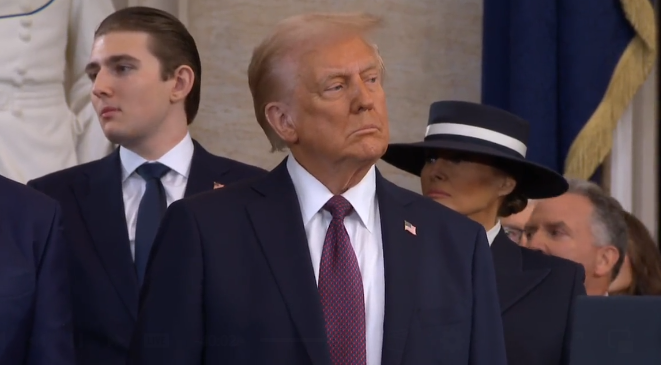LONDON (Reuters) – World stock markets kept their nerve on Monday, as data showed the Chinese economy slowed last year, underlining the need for more stimulus from Beijing.
FILE PHOTO – An investor watches a board showing stock information at a brokerage office in Beijing, China October 8, 2018. REUTERS/Jason Lee
European stock markets opened broadly lower as a note of caution set in with British Prime Minister Theresa May set to present her ‘Plan B’ for Brexit to parliament later in the day. Trade in general was subdued with U.S. markets closed for the Martin Luther King Jr. Day.
World markets appeared to experience some relief thanks to data showing that the Chinese economy, the world’s second biggest, grew 6.4 percent in the fourth quarter from a year earlier, matching levels last seen in early 2009 during the global financial crisis.
But the data was in line with forecasts and there were some bright spots, with factory output picking up stronger-than-expected in December and a stronger services sector.
“On balance, the data is relatively positive and does not point to a hard landing,” said Timothy Graf, head of macro strategy at State Street Global Advisors in London.
“The consumption data being better than expected is the positive takeaway in that China is trying to engineer a move towards a consumer-led economy.”
Growing signs of weakness in China — which has generated nearly a third of global growth in recent years — has fueled anxiety about risks to the world economy in recent weeks and are weighing on profits for firms such as Apple (AAPL.O).
MSCI’s broadest index of Asia-Pacific shares outside Japan .MIAPJ0000PUS rose 0.2 percent, touching its highest since early December. Stock markets in China .CSI300 and Japan .N225 added 0.25-0.6 percent.
MSCI’s emerging market stock index .MSCIEF briefly touched its highest level since October, while the Australian dollar AUD=D, often used a liquid proxy for China investments, nudged up to $0.7185.
Chinese stocks had rallied on Friday on reports U.S. Treasury Secretary Steven Mnuchin discussed lifting some or all tariffs imposed on Chinese imports, a story later denied.
U.S. President Donald Trump said on Saturday there has been progress toward a trade deal with China, but denied that he was considering lifting tariffs.
PLAN B
In currency markets, the British pound pulled further away from last week’s two-month highs against the euro as investors awaited the next steps to break the deadlock over Brexit.
British Prime Minister Theresa May’s Brexit deal was rejected by lawmakers last week and May will return to parliament on Monday to outline her so-called Plan B.
“May’s latest statement on her Brexit intentions is likely to suggest that her Plan B is simply to carry on with her Plan A,” said Chris Scicluna, head of economic research at Daiwa Capital Markets. He said discussions would be held in the hope of avoiding “the major economic self-harm of a no deal.”
The uncertainty kept sterling pressured at $1.2852 GBP=, having briefly been as high as $1.3000 last week.
Against the euro, the pound slipped a quarter of a percent to 88.46 pence EURGBP=D3.
Weakness in sterling helped lift London’s blue-chip stock index .FTSE, while stock markets in Paris and Frankfurt weakened 0.2-0.4 percent .GDAXI .FCHI.
The dollar softened against the yen at 109.58 JPY=, and was about a fifth of a percent weaker versus the euro EUR=. Against a basket of major currencies, the dollar was a shade softer at 96.229. .DXY.
Elsewhere, crude prices briefly rose to their highest so far in 2019 after data showed refinery processing in China, the world’s second-largest oil consumer, climbed to a record last year despite a slowing economy. [O/R]
Brent crude oil futures LCOc1 briefly rose above $63 for the first time in 2019. U.S. West Texas Intermediate crude futures CLc1 were steady at $53.78 a barrel, having earlier pushed above $54 a barrel for the first time this year.
For Reuters Live Markets blog on European and UK stock markets, please click on: [LIVE/]
Reporting by Dhara Ranasinghe; Additional reporting by Wayne Cole in SYDNEY; Editing by Raissa Kasolowsky






Leave a Reply